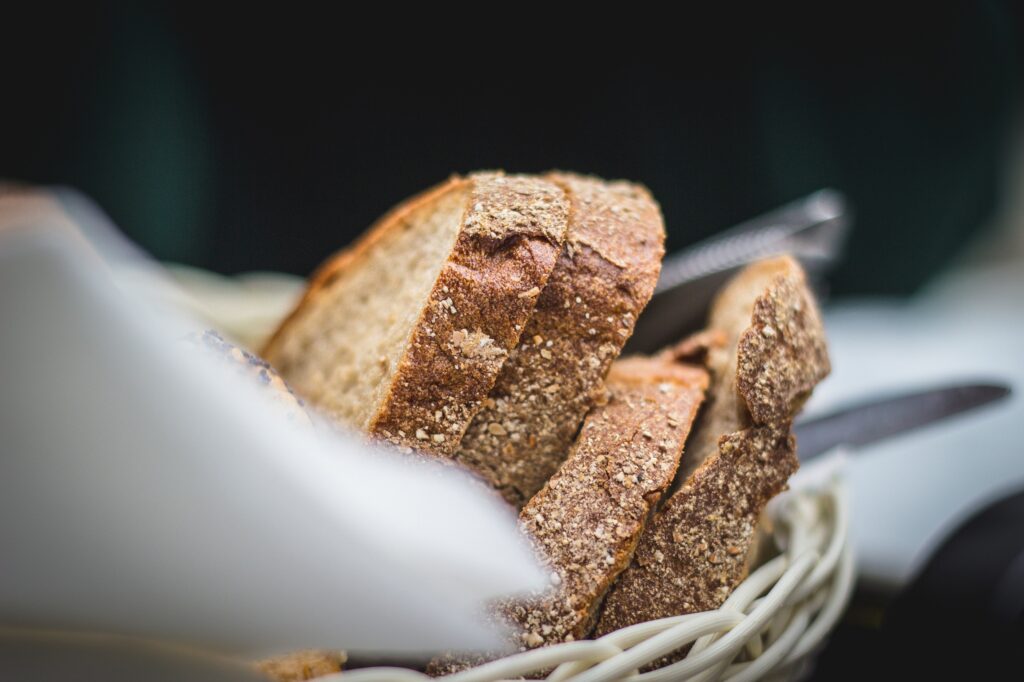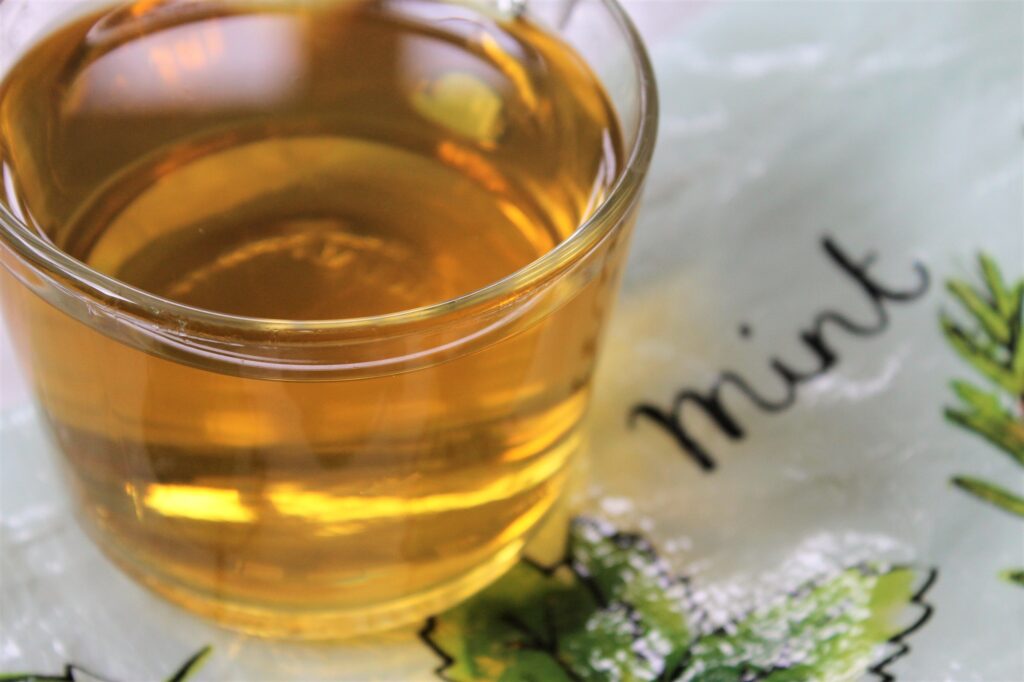
3 Easy Food Swaps to Help Your PCOS

PCOS food swaps are all about easy ways to adjust your diet and minimise those pesky PCOS symptoms. From balancing hormones and regulating your cycle to reducing hirsutism and softening mood swings, I have found that making adjustments to my diet is integral for managing the condition.
Over the past five years, I have tried all manner of diets, lost over a stone in weight, experimented with various exercise routines, and dabbled in quite a few supplements. So, believe me when I say, I know what it feels like to be promised a “cure” and be utterly let down.
Will these PCOS food swaps cure your problems? Absolutely not. But they are a manageable way to start your journey and you won’t feel like you have sacrificed your favourite foods along the way.
Easy PCOS Food Swaps
I have based these food swaps on advice from medical authorities, trusted bloggers, personal experience, and a very limited number of studies. I certainly encourage you to discuss managing your PCOS through diet with your doctor or a nutritionist… however, if you are in the UK, you may find that the NHS is less than helpful. And you wouldn’t be alone.
So, don’t be disheartened and just keep going. Give these swaps a try. Keep the ones that work, ditch the ones that don’t. I also recommend keeping a diary of your PCOS symptoms so you can get a better idea of which supplements, diets, and exercise regimes actually work and which symptoms they work on.
1. Wholegrains vs Refined Grains

Managing PCOS is very closely tied to managing insulin resistance. This is why most women with PCOS absolutely crave carbs and sugary foods. Well + Easy Blog does a good in-depth explanation but let me cover the basics here.
In a nutshell, insulin levels naturally rise after you eat food to stimulate your body to convert that glucose into energy. Women with PCOS have insulin resistance – we aren’t sure why, but the two are intrinsically linked. This means that our bodies go overboard producing insulin after we eat. High insulin levels lead to more testosterone, delayed or missed ovulation, inflammation and weight gain.
So, this first swap is all about ditching foods that spike your blood sugar (and therefore insulin) quickly and highly, replacing them with foods that have a slower and lower impact. To do this, we can focus on foods that have a low glycaemic index (GI) instead of a high GI.
Refined grains are in the high GI category. White bread, white rice, pasta, pastry, potatoes… anything that is made from refined white flour or potato is out. Wholegrains, on the other hand, are in. This includes wholegrain bread, wholegrain pasta, brown rice, and all manner of grains.
Sugar is high GI, but whole fruits tend to be lower (with some exceptions, like watermelon). But let’s focus on those carbs first and take a step towards a low GI diet for this easy PCOS food swap.
Easy swap: choose the carb you eat most (bread, pasta, or rice) and swap it for the wholegrain version. Once you’re comfortable with that, move onto the next carb.
Full swap: if it has a refined ingredient, ditch it. Use the GI Index to ensure you stick in the low and moderate categories. Grains (couscous, bulgur wheat, quinoa) and lentils are your friends. Some examples of swaps I personally enjoy:
- Wholegrain bread over white bread,
- Sweet potato over white potato,
- Chickpea flour/ground almonds over white flour in baking,
- Date syrup over sugar, honey, agave, and whatever other sweet syrup is currently trending! I like Biona Organic Date Syrup best.
2. Soy vs Dairy

Next, dairy milk. Dairy in the PCOS community is a hot topic but actual scientific studies are severely lacking. PCOS Oracle does a good job of detailing the potential advantages and disadvantages of consuming dairy milk. The protein in dairy milk could be good for you, as it’s a good source of calcium and protein. On the other hand, dairy milk can increase inflammation which is a big no for PCOS and if you live in the US you may be drinking milk with additional hormones.
So, I am a little on-the-fence about dairy. Everyone in the PCOS community seems to have an opinion! But there is one type of “milk” that most seem to agree on: soy.
A 2016 trial found that soy isoflavones improved the hormonal status and insulin resistance of PCOS women. A 2021 study administered soy isoflavones to rats with PCOS, discovering that it decreased serum testosterone, reduced inflammation, and improved ovarian morphology. However, soy could be a bad idea for anyone with a thyroid disorder – PCOS Nutrition Center has summarised the research on this.
Easy swap: replace your milk with unsweetened organic soy milk (look for one that’s fortified with vitamins and minerals but not sugar or salt). My top choice would be Alpro Long-Life Soya No Sugars. This is good for cooking, cereal, and tea.
Full swap: as well as drinking soy milk, incorporate unprocessed versions of soy into your diet. Replace feta and halloumi with tofu and swap your peas for edamame beans, for example. I have some great tofu sauce ideas to get you started.
3. Spearmint Tea vs Coffee

Okay, so this is my last easy PCOS food swap. The relation between caffeine and PCOS is unclear, to say the least. There are studies that claim it could aid PCOS and others that say it can worsen PCOS. I refer to the The PCOS Bible for facts about caffeinated beverages, specifically coffee, as it is by far the most balanced and well-researched article I have found on the topic. To summarise it here, coffee enhances insulin sensitivity when consumed regularly, stimulates adrenal glands for excess androgen production, and may decrease fertility.
Enter, spearmint tea. A randomized controlled trial on 42 women in Turkey found that consuming two cups of spearmint tea per day for a month had a significant impact on reducing free and total testosterone levels. The participants also reported a reduction in hirsutism. Of course, this is a very small trial and the duration was quite short, however the scientists do conclude that there is great potential here and the effects of spearmint on PCOS should be studied further.
Easy swap: limit your coffee intake to 1 cup per day, then swap any additional cups you usually drink with spearmint tea. Hampstead Peppermint and Spearmint has a good minty taste that disguises the grassy note of spearmint with peppermint menthol.
Full swap: quit coffee including decaf (why? See The PCOS Bible source above) and drink a minimum of two cups of spearmint tea per day.
While I am no expert on PCOS, I do have some first-hand experience dealing with symptoms and changing my diet to help manage it. I sincerely hope that this article has helped you make a few easy PCOS food swaps that kickstart your journey.
Don’t forget that there are so many online communities of women with PCOS, from Reddit to Instagram, so you really don’t need to face this alone. Good luck!